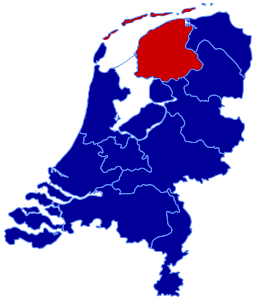On one sunny day I was enjoying my very Dutch croquette in the snack bar around the corner of our house when a tall man walked in and ordered something for himself and his family. The man looked old and tired. The young girl behind the bar listened to his order but I noticed that she hadn’t written down anything. After the old man mentioned everything he wanted to order, she smiled and asked the man, in Dutch, if he could repeat what he said but this time in Dutch. I left my croquette for what it was because I didn’t want to miss this. My eyes turned to these people, my ears only wanted to hear their conversation. I leaned forward because this was going to be interesting. I saw something in the eyes of that man, something I’ve seen before but somewhere far away. He was a fighter, this man was furious at the young lady. He answered loudly: “You are here in Friesland, you should learn Frisian. I am not going to change my language because you cannot understand me. Now go get someone who speaks Frisian.” And deep down I felt sympathy and love for this man. He was one of the few Frisians I had come across to in those 20 years who still fought for their independence or difference. He reminded me of us, of Kurds.
There are two languages in the Netherlands: Dutch and Frisian. The Frisian language is the only minority language that has been recognized under part III of the European Charter for Regional or Minority Languages. What this means is that the Netherlands is obliged to take certain actions in order to foster this minority language. There are different methods to promote the language; one of them is by means of education and since 1980 Frisian Language has been a compulsory subject for primary school pupils in the province of Friesland. Unfortunately, our language, Kurdish, is still not a compulsory subject in some parts of Kurdistan.
The history of the Frisians starts around the 6th century BC. It can be said that a justified termination of this history is in 1813 when Friesland like all other regions becomes a province of the newly formed Kingdom of the Netherlands. Until today Friesland tries to preserve and promote its language, culture and identity but Frisian developments can only take place within the framework of the Dutch state and are therefore limited. Big decisions are not made in the Capital of Friesland Leeuwarden but in The Hague. Big decisions are not made in the Capital of Southern Kurdistan Erbil but in Baghdad and only within the framework of.. Exactly.

The Frisians have their own flag and their own national anthem. They have their own bank, T.V and radio stations. Frisian horses and cows are very popular and even their sports are well known.

The reason why Friesland isn’t a state? Well, there are some historians who believe that it’s the fault of many Frisians who weren’t patriotic enough in 1813. This reminds me of the Treaty of Sèvres where there was an initial agreement on the boundaries of a Kurdistan but which was rejected by Kurds.
There are so many similarities between Frisians and Kurds, Friesland and Kurdistan. I’m delighted that I had a chance to grow up among them. I learned so much from their rebellious way of thinking. I vote for an independent Friesland and an independent Kurdistan because in the end; Bûter, brea en griene tsiis, wa't dat net sizze kin, is gjin oprjochte Fries.



No comments:
Post a Comment